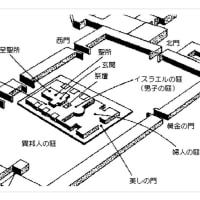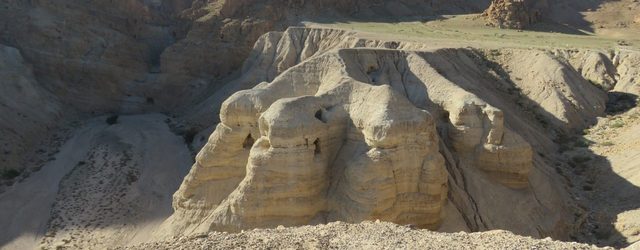マルコの福音書1章 イエスの宣教のはじめ
1.福音のはじめ(1:1-13)
マルコの福音書は、イエスの誕生のエピソードを省略しています。1節、マルコは、「神の子イエス・キリストの福音のはじめ」と自らの福音書を書き起こし、バプテスマのヨハネの活動、イエスのバプテスマ、荒野の誘惑、ガリラヤ宣教とその要点を簡単に書き進めて行きます。マルコの福音書の特徴です。マタイは、イエスの教えを丁寧に取り上げ、五つの説教集を福音書の中にまとめていました。しかし、マルコはイエスの行動に注目しているのです。
そこで、二つ目の福音書を読むにあたり、ぜひ心に留めておいていただきたいことがあります。福音書は、イエスが書いたものではなく、イエスの弟子たちがイエスについて書いたものだということです。つまり、イエスに対するマタイの目線があり、またマルコの目線がある。二つの観察があるということです。また、マタイとマルコ、それぞれが、イエスについて語ろうとした読者も違います。
たとえば、9節、マルコは、イエスがヨハネからバプテスマを受けたことを記録していますが、この記事マタイの福音書の方が、長く詳しいのです。マタイは、マルコの記事に、イエスのバプテスマの意義と、ヨハネとの間に押し問答のあったことを付け加えています。それは、マタイがこれを書いた時期には、イエスのバプテスマの意義について語らねばならなくなった初代教会の事情があったからなのでしょう。マタイは、これは言っておかなくてはならない、と考えたことを加えたというわけです。福音書はイエスの言行録でありながら、イエスのことばと、イエスのことばを伝えようとした著者の、二重の話者を意識して読んでいく必要があるのです。
2.イエスのガリラヤ宣教(1:14-45)
さて、マルコは、荒野の誘惑を記した後、ガリラヤ宣教を記録します。マルコの書き方は実に、簡にして要を得る書き方です。それは、マルコがローマ人の読者を念頭にしたからなのでしょう。というのも、ローマ人は、成果主義で、せっかちに、業績に興味を抱く性質があったので、イエスがしたことを簡単にまとめていく書き方をした、というわけです。
まずガリラヤ宣教の初め、イエスはシモンとアンデレを弟子に招かれました(16-20節)。彼らはすぐにイエスに従いました。続いて会堂に入って教えられると、人々も、イエスの権威を認めています(21-28節)。イエスに肩書などありません。まさに語ることの実力勝負です。そして、人々は、イエスの語ることばに力を感ぜずにはいられませんでした。さらにマルコは、イエスの一連の癒しを書き留めていきます。まず、ペテロのしゅうとめの癒し(29-31節)。これは二つの点で、当時の宗教家のようではなかったイエスを印象づけるものでした。一つはその癒しが行われたのが安息日であったことです。ユダヤ人は安息日を厳粛に守るように教えられました。ですから、32節、人々は安息日が明けてから、イエスのもとに病人を連れてきて癒しを求めてきた、それが普通でした。しかし、イエスは、その普通のことを破られたのです。また、当時の教師は、婦人が食卓で給仕することを許しませんでしたが、イエスは、それを受け入れています。人々はイエスのすること、なすことに全く新しい風が吹いてくるような印象を受けたのです。ツァラアトに冒された人の癒しもそうです(40-45節)。この時イエスは、身をかがめて手を指し延ばされて癒されました。当時の教師であったら背を向けたことでしょう。つまり、イエスは、そのことばにも、振る舞いにも、当時の宗教家とは全く異なる印象を与えました。イエスは言います。38節「さあ、私はそこでも福音を伝えよう。そのために、わたしは出て来たのだから」イエスの宣教の目的は福音、つまり神からの良き知らせを伝えることでした。イエスが語る信仰は、人を宗教に雁字搦めにするようなものではありません。それは、生活に新しい感動といのち、そしてチャレンジを与えるのです。では今日もよき一日となるように祈ります。
Mark 1: The Beginning of Jesus' Ministry
1. the beginning of the gospel (1:1-13)
Mark's Gospel omits the episode of the birth of Jesus; in verse 1, Mark begins his Gospel with "The beginning of the gospel of Jesus Christ, the Son of God," and proceeds to write briefly about John the Baptist's activities, Jesus' baptism, the temptation in the wilderness, the Galilean mission and its main points. This is characteristic of Mark's Gospel. Matthew had carefully covered Jesus' teachings and compiled a collection of five sermons in his gospel. But Mark focuses on Jesus' actions.
So, as you read the second Gospel, there is something I would like you to keep in mind. The Gospels were not written by Jesus, but by his disciples about him. In other words, there is Matthew's perspective on Jesus, and there is Mark's perspective. It means that there are two observations. Also, Matthew and Mark each have a different audience for what they were trying to say about Jesus.
For example, in verse 9, Mark records that Jesus was baptized by John, but this article Matthew's Gospel is longer and more detailed. Matthew adds to Mark's article the significance of Jesus' baptism and the pushback he had with John. This is probably because at the time Matthew wrote this, there were circumstances in the early church that made it necessary to talk about the significance of Jesus' baptism. Matthew added what he thought needed to be said. Although the Gospels are the sayings and deeds of Jesus, we need to read them with an awareness of the dual speakers: the words of Jesus and the authors who were trying to convey the words of Jesus.
2. Jesus' Mission to Galilee (1:14-45)
Now, after Mark records the temptation in the wilderness, he records the Galilean mission. Mark's style of writing is really a simple and to the point style of writing. This is probably because Mark had a Roman reader in mind. The Romans were results-oriented, impatient, and interested in accomplishments.
First, at the beginning of his Galilean ministry, Jesus invited Simon and Andrew to become his disciples (vv. 16-20). They immediately followed Jesus. When they subsequently entered the synagogue to teach, the people, too, recognized Jesus' authority (vv. 21-28). Jesus has no title. It is truly a contest of ability to speak. And the people could not help but feel the power of Jesus' words. Mark goes on to record a series of Jesus' healings. First, the healing of Peter's wife (vv. 29-31). This impressed Jesus, who was not like the religious people of his day, in two ways. First, the healing took place on the Sabbath. Jews were taught to keep the Sabbath day with great solemnity. So, in verse 32, people brought their sick to Jesus for healing after the Sabbath was up, which was normal. But Jesus broke that normality. Also, the teachers of the time did not allow women to serve at the table, but Jesus accepted it. The people had the impression that a whole new wind was blowing in the direction of what Jesus was doing. The same is true of the healing of the man affected by tsara'at (vv. 40-45). On this occasion, Jesus stooped down and extended his hand to heal him. A teacher of the time would have turned away. In other words, Jesus made a completely different impression in His words and in His behavior than the religious leaders of His day. Jesus says, v. 38: "Now I will preach the gospel there also. The purpose of Jesus' ministry was to preach the gospel, the good news from God. The faith of which Jesus speaks is not the kind of faith that makes one goose-stepping into religion. It gives new excitement, life, and challenges to life. I wish you a good day today.


















